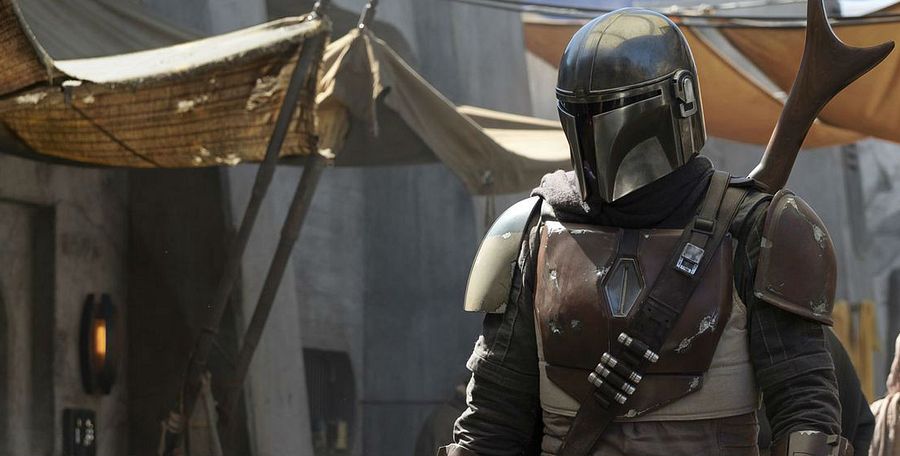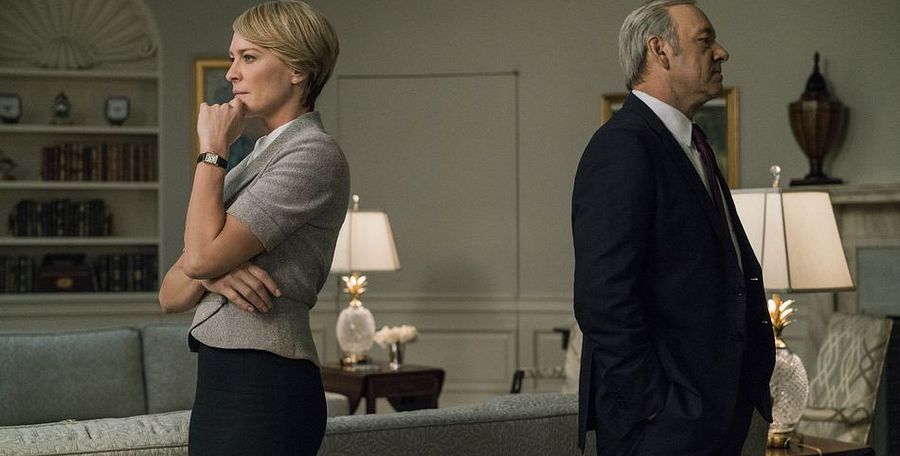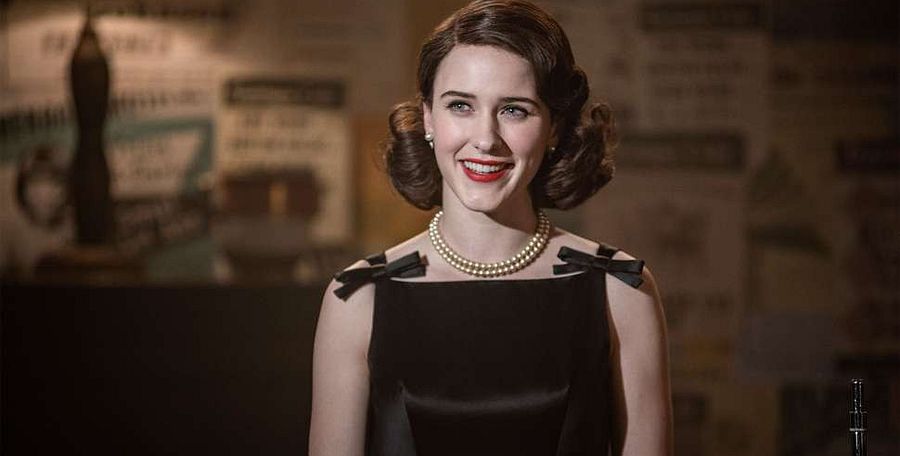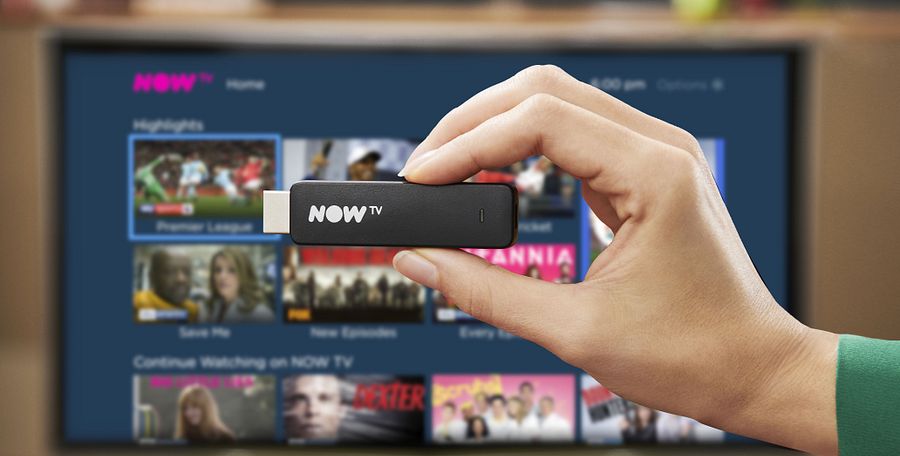The Future of TV in Ireland
On January 4th, 2012, Netflix launched in Ireland, and in just seven years managed to change the way we watch TV forever. No longer tied to what terrestrial channels have to offer or what boxset they need to dust off, Irish viewers can now choose what they want to watch, when and even where they want to watch it. TV viewing has changed forever in Ireland and beyond but just where is it all going?
Broadcasters and content makers all want a piece of that tasty Netflix pie and competition is coming thick and fast. Streaming services like Amazon Prime and Hulu are all producing their own original content now (although the latter is not yet available in Ireland), while there are soon to be even more hats in the ring with the upcoming launch of Disney+ and Apple TV.
It's difficult not to see a major player like Disney joining the streaming market as a threat to Netflix's reign, who currently have over 151 million paid memberships in over 190 countries. Especially considering the amount of content on Netflix that belongs to Disney — who has already begun to take it back to its own service. The pair signed a deal in 2012 which gave Netflix US streaming rights to Disney's films starting with 2016 releases, but this ended in 2017 when news of their own streaming service was announced. Since then, Netflix's Original Series under the Marvel banner ('Daredevil', 'Jessica Jones' etc) have all been cancelled while Disney has announced its own slate of Marvel shows with stars from the movie universe, as well as the first-ever live-action 'Star Wars' TV series, 'The Mandalorian'. So Disney, as you would expect, has the big bucks and aren't holding back on spending it.

The Mandalorian arrives on November 12th on Disney+.
Netflix meanwhile has been pouring its resources into developing its Original Content, with new movies and TV shows launching on the platform practically every week. The ultimate goal is to have 50% of the streaming service's content to be Netflix's own (via Variety) and hence why there have been so many deals with TV heavyweights like Shonda Rhimes, Chuck Lorre and most recently, 'Game of Thrones' showrunners David Benioff and Dan Weiss. Hell, even Scorsese has a movie coming out with Netflix soon.
All of this spend however has left Netflix $12.3 billion in debt (via Variety), enough to have any corporation shaking in their boots but despite this, Netflix moves forward with confidence.
In a letter to shareholders earlier this year, Netflix warned investors it would continue to raise debt. "As long as we judge our marginal after-tax cost of debt to be lower than our marginal cost of equity, we’ll continue to finance our working capital needs through the high yield market," it read.
It's a plan that is working for now, with the streaming service increasing its return on invested capital since 2017. (via Forbes) While compared to competitors, Netflix's ROE (return on equity) is also performing well.
Netflix's earnings report for Q2 in 2019 (shared with entertainment.ie via Netflix Ireland) stated, "Much of our domestic, and eventually global, Disney catalogue, as well as 'Friends', 'The Office', and some other licensed content will wind down over the coming years, freeing up budget for more original content. We don’t have material viewing concentration as even our largest titles (that are watched by millions of members) account for only a low single-digit percentage of streaming hours.
"From what we’ve seen in the past when we drop strong catalogue content (Starz and Epix with Sony, Disney, and Paramount films, or 2nd run series from Fox, for example) our members shift over to enjoying our other great content."

House of Cards - The first original TV show of Netflix kicked off in 2013.
So Netflix isn't worried. And considering this is a company that has been knocking around since 1997, we are inclined to believe them when they say they have planned for the future.
Netflix's July Shareholders Letter continues to reassure investors stating, "Over the next 12 months, Disney, Apple, WarnerMedia, NBCU and others are joining Hulu, Amazon, BBC, Hotstar, YouTube, Netflix, and many others in offering streaming entertainment. The competition for winning consumers' relaxation time is fierce for all companies and great for consumers. The innovation of streaming services is also drawing consumers to shift more and more from linear television to streaming entertainment.
"In the US, our most developed market, we still only earn about 10% of consumers’ television time, and less of their mobile screen time, so we have much room for growth. We, like HBO, are advertising free. That remains a deep part of our brand proposition; when you read speculation that we are moving into selling advertising, be confident that this is false. We believe we will have a more valuable business in the long term by staying out of competing for ad revenue and instead entirely focusing on competing for viewer satisfaction."
So what does all this mean for Irish viewers? Well, our loyalties appear to still very much lie with Netflix, with around 500,000 households in Ireland "having access" to Netflix according to a survey from the Irish telecoms regulator, Comreg.
Amazon Prime launched in Ireland to little furore in 2016 but is slowly gaining in popularity here thanks to original shows such as 'The Grand Tour', 'The Boys' and 'The Marvellous Mrs Maisel'.

Rachel Brosnahan as Miriam Maisel in The Marvellous Mrs Maisel on Amazon Prime.
Our own broadcasters have also upped their game in recent years. In a statement to entertainment.ie, RTÉ said: "As more services come into the market, it drives more adoption of streaming TV and grows the overall market in which RTÉ Player operates so RTÉ welcomes these services. We want to connect with audiences when and where they want to watch RTÉ programmes and RTÉ Player is available on Apple TV."
The likes of Irish favourites 'Love/Hate' and 'Bachelors Walk' can all now be viewed on the RTÉ Player as well as many boxsets including 'The OC', 'Dawson's Creek', 'Ally McBeal' and 'Frasier' and more.
RTÉ has also established The Lab, which is a team dedicated to creating and commissioning short-form content for RTÉ Player, with a particular focus on younger audiences. There's also RTÉ's Documentary Unit which is producing 32 original short-form documentaries just for RTÉ Player.
RTÉ's statement went on to say: "The future is not about the demise of linear media in favour of an on-demand world. It is far more complex and will be a blend of live, on-demand, long-form and short-form to meet evolving needs. RTÉ, like many media organisations, is adapting to ensure that it will continue to deliver premium Irish content across linear and on-demand platforms."
The government has also decided to scrap the current TV license fee over the coming years and change it to a broadcasting charge, so regardless of whether you have a TV or not, you will still have to pay an annual fee.
The current charge is at €160 a year with the price yet to be decided on what's being called the "device-independent broadcasting charge".
Speaking earlier this month, Communications Minister Richard Bruton said: "It is clear that due to the nature of technological change and the movement towards digital devices, the design of the TV licence fee will have to change. This is a fundamental reform that will take time to develop, but it will future-proof the funding model, taking account of changes in technology and in how content is now consumed."
Virgin Media Television, formerly TV3, has also been making plans for the future. Speaking to entertainment.ie, Bill Malone, Director Of Content at Virgin Media Television, said, "The growth in streaming represents an opportunity rather than a threat for a multi-platform connected business such as Virgin Media Television. The most streamed programme in Ireland this year was on Virgin Media Television platforms, 'Love Island', with over 13 million views On Demand and on the Virgin Media Player alone. We have seen substantial growth in our On-Demand performance this year and expect this to continue – while our Free To Air share of viewing is also in growth."
We also asked Sky and Now TV how they were feeling about the highly competitive TV landscape they find themselves in. A statement to entertainment.ie read: "It’s a really exciting time for our industry right now with more choice than ever before. Streaming, as we’re seeing through our own streaming service, NOW TV, is becoming more and more popular but we believe that the two are very different products and suit different audiences.
"Sky is a whole-home solution with the likes of Sky Q offering TV lovers a host of amazing features including multi-room, voice control, voice search, Pause and Play, record six & watch seven, whereas NOW TV is primarily aimed at those who want to watch Sky’s great content but don’t want to be tied to a contract or have a dish. NOW TV has been particularly popular in Ireland with sports lovers who dip in and out of the sports they want to watch, whether that’s a GAA doubleheader, a golf tournament or football matches."
"We are often asked if the likes of Netflix are a threat but Sky works very closely with Netflix and we have aggregated Netflix onto the Sky Q platform making it easier than ever for our customers to access the content they love. It’s also available via an app on NOW TV."

So everyone is upping their game but what does this mean for us, the consumer? Last weekend's D23 Expo confirmed that the US launch of Disney+ will happen on November 12th, so odds are it'll be shortly thereafter in Ireland and the UK. CNET reports that the streaming service will be priced at €7 a month or €70 a year in the Netherlands, so it will presumably be the same price across Western Europe. A Netflix subscription in Ireland at the moment is currently €7.99 per month for its most basic package, while the standard package is €11.99 (following a recent €1 price hike).
Disney+ is clearly offering a very competitive price but are we all to pump out cash just to get the different content we want from various streaming services? Hardly sustainable for many households. Given Disney's impressive back catalogue, it would be a very easy choice for families. The future then, surely, will have to see platforms teaming up with their subscription offers. As Sky stated above, they have embraced their competition with Netflix and now have it available on their platform. Vodafone TV has done the same. Disney has already invested in Hulu so no doubt those two will soon come hand in hand, while there's even talk of the BBC and ITV teaming up to offer all their content on one platform. The fewer contracts the better too, allowing viewers to pick and choose who and what they subscribe to depending on the current content on offer.
It seems inevitable that not all will survive, although an unpopular streaming service would hardly tank the corporate giants that are Disney, Amazon and Apple.
A report made by the BAI (Broadcasting Authority of Ireland) in 2017, which gave its predictions for the likely development of the Irish broadcasting landscape over the next five years, stated: "Over the coming years, we expect penetration of connectivity and connected devices to increase, in turn continuing to drive consumption of video content on a non-linear basis. In overall terms, viewers will continue to watch long-form TV content through a combination of live channels, PVR playback and VOD [video-on-demand] viewing. Consolidated viewing on the TV set (across all three of these categories) is likely to decline further but at a slower rate than over the past five years.
"As a result, our analysis confirms that viewers will continue to move away from complete reliance on broadcast television towards new forms of consumption – particularly among younger age groups. However, by 2022, viewing of live TV will still represent 87% of all video consumption on the TV set (from 90% in 2016).
"We do not believe that there will be a fundamental shift away from the TV set, which will remain the primary device for video consumption within the home. Neither will there be a wholesale shift to the consumption of long-form video on mobile devices or tablets in the home as these will never be the best-available screen for watching high-quality long-form video."
How we consume TV in Ireland does not appear to have any massive changes in store in the immediate future and the live TV experience is still something that will continue to draw viewers in. But then you only need to look at the viewing figures for the likes of 'The Late Late Show' and 'Love Island' to know that.
In terms of what we will be watching, one thing is for sure, Irish viewers will not be lacking in choice any time soon, but will quality be sacrificed for quantity? You can only hope the cream will rise to the top after what has been a Golden Age of television, but with so many shows commissioned and cancelled on a regular basis, and A-list actors flocking to be part of them all, it's becoming harder and harder to stand out from the crowd. The likelihood is we will still rely on what we have always relied on for what to watch, good old fashioned word of mouth, whether that comes from a friend or online.
Will those recommendations start to be for Disney+ content over Netflix? Possibly. Will we each have five to ten different subscriptions to various streaming services along with an annual broadcasting charge? Unlikely. Not all will survive but they are damn well going to give us every show possible to make sure they do. Whether that's a good thing or not we will leave up to you to decide.

